My Day With The Socialists, Part 2: The Abortion Storytellers
What Do Socialists Talk About At Their Reproductive Justice Events? A look inside the Collective Power conference program, and around Hampshire College.
On April 15, 2023, I spent the day at the Collective Power conference at Hampshire College in Western Massachusetts, with 200ish of my closest comrades. In this limited series, I will document the experience.
There’s a lot to talk about. If you appreciate my work, please consider funding it by subscribing for $5/month or $50/year.
Why go to a Socialist Reproductive Justice conference?
Because for the last seven months on my main YouTube channel, we have gathered every Saturday at 6pm Eastern to watch real socialism in action. It’s called Socialism Saturday. We watch the furthest of the far left, the real deal…self-identified Marxists, Socialists and Communists talk about how they view the world.
I have spent hundreds of hours watching people like this from afar. I wanted to be able to experience it in person. It’s exactly like when I went to the Trump rally as a Democrat…but in reverse. Except the event did not convince me to leave the Libertarians and become a socialist. I’m still firmly in the camp of the anarchocapitalists.
In fact, I had the idea to go to the Socialist conference live on the last episode of Socialism Saturday. I’m such a stealthy undercover journalist that I can literally announce what I’m doing and where I’m going live on the Internet, and the targets of my reporting will still have no idea it’s happening.
When I arrived at Hampshire College in Western Massachusetts on Saturday morning, I encountered a group of at least two dozen women arriving for the event, like a field trip or a group activity. Many of them were wearing Collective Power shirts and carrying Collective Power bags. I later learned that these were all interns with the organization, a robust funnel to recruit and train future social justice warriors.
The program says as much. They are very focused on recruiting young people on college campuses and getting them into the pipeline to work in activists organizations:
When I registered for the conference, I had to upload proof of vaccination. When I checked in, I was allowed to pick up a covid test…but they didn’t require I report the result to them. It was more on the honor system, which I thought was considerate. I knew I didn’t have COVID, and so I declined. All attendees were required to wear a mask.
There were also helpful baskets of supplies right next to registration. They had every type of condom you could want! They even had dental dams (we were at Hampshire College, after all) and provided free lube!
We had to make our own nametag. I used my initials KB, not to hide my identity but because I find it’s just easier for people to pronounce and will often use it at events when I don’t feel like explaining how to say my name.
I also had to write my pronouns on my badge. I selected she/her…but I had to announce my pronouns several times throughout the day and kept changing it up for fun. Sometimes I was they/she, sometimes she/they…you get the idea.
On the back of the nametag, it was noted that there were private rooms for “chest feeding.” How considerate!
We were also allowed to select a sticker to place on our nametag to let people know whether or not we felt like talking and meeting new people. We were allowed to change our sticker throughout the day as our mood changed.
I also couldn’t help but notice the permanent signs for the bathrooms in the building were for “self-identified” women and men.
It was a little shocking to me that they still bought into the gender binary!
“Hampshire College expects that all members of our community will let people self-identify their gender and the gender pronouns they use to describe themselves.”
There was also this lovely mural on one of the main academic buildings the conference was held in. Students had written things in the roots of the tree - I’ve shown you a few close-ups below:
So what types of things do they present at a socialist reproductive justice conference?
In the rest of this article, I will show you the presentation schedule and descriptions.
I will detail the content of the presentations I attended in a separate article.
The goal here is to give you an overview of the topics on their minds, and the people and organizations involved in the conference.
Opening Keynote Panel: Synopsis of Oppression/Strategies for Change
Using an intersectional reproductive justice lens Combahee, Greenesmith, and Njoku will identify some of the through-lines of the recent anti-trans and anti-abortion attacks and share how we can foster hope, build resistance, and solidarity at this political moment. How can we lift up Trans and BIPOC liberation and see beyond the threats of the opposition right now?
Presenters:
Marlene Fried (she/her): The Interim President of Hampshire College in 2010-2011, and is a Professor Emerita of Philosophy at Hampshire College.
Heron Greenesmith (they/them): Senior Research Analyst for LGBTQI Justice at Political Research Associates, and adjunct faculty at the Boston University School of Law.
Yemi Combahee (she/her): A Black Queer Femme liberation strategist, abortion advocate, and reproductive justice organizer, the Constellations Hive organizer at Black Feminist Future where she builds Black feminist power for reproductive justice.
Oriaku Njoku (she/they): A first-generation, Black, Igbo, Nigerian-American, Kentucky-raised, queer, fat, Southern femme, healing-centered coach living and loving in Atlanta, Georgia, Executive Director of the National Network of Abortion Funds.
Breakout Sessions
Many of these overlapped, meaning that you could only go to two on the list. I’ve noted the ones I attended and will detail in a future piece. It was a tough choice!
Healing Justice 101
What would happen to our world if we understood that healing was deeply connected to the dismantling of racism, transphobia, misogynoir, ableism, white supremacy, and capitalism, and chose to center that? Healing Justice is a framework that aims to intervene and respond to generational trauma and systemic oppression, and to build community and survivor-led responses rooted in Southern traditions of resiliency.
This holistic and encompassing framework aims to sustain our emotional/physical/spiritual/psychic and environmental well-being as we decommission, reimagine, and iterate the structures that sustain us. In this workshop, we do an overview of healing justice that introduces concepts like trauma, and restorative practices and offers healing-justice-based alternatives to white supremacist practices like diversity, equity, and inclusion.
Presenters:
Simran Singh Jain (she/they): no bio provided.
Lori Rodriguez (she/they): A queer writer, educator and content creator of indigenous Central American descent.
Population Control and Eugenics 101
This 101-level workshop is an introduction to eugenics and population control. Eugenics was a popular scientific theory from the early 1900s. It is the biased belief that selective human breeding will produce white, able-bodied people that are superior to others. It is related to population control. Population control refers to when people in positions of power force or persuade others to get sterilized, use contraceptives, or have children. Both eugenics and population control undercut reproductive and disability justice. They show up today in reproductive abuses and campaigns to reduce population growth to save the planet. Come learn more about these issues and how to resist them.
Presenter:
Anne Hendrixson (she/her): The Senior Policy Analyst for Challenging Population Control at Collective Power. Before joining Collective Power, Anne was the Director of PopDev, the Population and Development Program at Hampshire College, and a lecturer in the school of critical social inquiry, where she taught for four years.
Grounding RJ Strategies in Histories of Resistance
Communities have always challenged gendered and reproductive oppressions that shape the U.S. Past resistance paved the way for today’s RJ movement. We’ll spotlight examples, identify opportunities to build their legacies of intersectional organizing into our strategies, and explore the ROOTS OF RJ project as a resource for fighting the Right.
Presenters:
Cynthia Lin (she/they): Cynthia Lin is a curriculum design consultant working with the Roots of Reproductive Justice History in Action Project
Abigail Fisher (she/her): A civic designer who believes her role is to hold space and break down bureaucracy so that communities can design for themselves.
Opposition 101: How-To and a Case Study
(Karlyn’s note: This is one of the sessions I attended)
Who the heck are all these anti-transgender doctors who keep testifying against gender-affirming care? Who are the opposition, and how are they organized? Come find out the answers to these questions, and learn more about the tactics being used by the Far Right to restrict bodily autonomy in the US.
Presenter:
Heron Greenesmith (they/them): Senior Research Analyst for LGBTQI Justice at Political Research Associates, and adjunct faculty at the Boston University School of Law.
Uncovering Belonging in the Mess of Queer of Color Critique
Queer of color critique is a form of resistance borne out of the inevitable mess that accompanies the QPOC narrative which rejects the necessity of general belonging. Queer of color critique establishes a new sense of general belonging and safe spaces created for QPOC by QPOC which continues to move and progress outside of traditional ideals of “home.” This workshop welcomes allies and everyone.
Presenter:
Khiari Neal, (she/her): A third year Sociology major, African American Studies minor at the University of California, Los Angeles (UCLA)
Current Legal Issues/Cases Confronting the Movement
Join us for a roundtable discussion of pressing legal issues and cases attacking bodily autonomy, grounded in the values of Reproductive Justice. We will focus on the recent FDA case blocking access to the abortion pill and the onslaught of bans on gender-affirming care. How do these fit together with Dobbs and the larger RJ movement? What is the role of the legal profession? We look to the history of RJ resistance and counter-resistance to answer these questions.
Presenters:
Nargis Aslami: no bio provided.
Namrata Jacob: no bio provided.
Jen Rasay: no bio provided.
Adri Perez: no bio provided.
Marlene Fried (she/her): The Interim President of Hampshire College in 2010-2011, and is a Professor Emerita of Philosophy at Hampshire College.
Sharing Our Abortion Stories with the World (Closed Space)
Only we know how our experiences and abortion stories have shaped our lives. This storytelling workshop will help people who have had abortions understand the “why” behind abortion storytelling, prepare for media interviews, and can serve as a refresher for those who’ve already been sharing their abortion stories publicly. This is the first step in joining a community of support comprised entirely of people who have had abortions. Our stories are meaningful, impactful, and a gift for other people who have had and will have abortions in the future. If you have had an abortion, we are delighted to have you join us for this training. If you have not had an abortion, we ask that you not attend this workshop. We love you, and our goal is to create a supportive training space solely for people who have abortions.
Presenter:
Emma Hernández: no bio provided.
Building the Fire Fund: A Fund to Support Indigenous Reproductive Sovereignty
This workshop will tell the story of an organizing effort that has been ongoing for almost two years to build a national platform for Indigenous Reproductive Justice. We will share results from the groundbreaking report, Tired of Dancing to Their Song: An Assessment of Reproductive Justice in Indian Country. In addition, we will share more about the group of 15 Indigenous leaders heading this effort and the role of the Ms. Foundation for Women to support it.
Presenters:
Coya White Hat-Artichoker: no bio provided.
Aimee Thorne-Thomsen: A long-time reproductive justice activist with more than 20 years’ experience in community organizing, communications, movement-building, and policy advocacy.
BFF Advisory Council members
RJ Beyond Population Control
What could a collective movement reckoning with population control look like? How could it strengthen reproductive justice? Join us for a shared consideration of these questions. We will jumpstart the conversation with suggested steps to uproot population control in today’s reproductive justice funding and programming. We compare dominant approaches, that paint population and fertility as a problem to be solved, to transformative feminist approaches, which emphasize Black, Indigenous, and people of color (BIPOC) feminist perspectives. Our goal is to enable meaningful, cross-movement collaboration to uphold reproductive and environmental justice in the face of stark reproductive oppressions, rising Far Right attacks on civil liberties, and worsening climate change. We welcome all levels of familiarity with RJ and population control. If you are new to issues of population control, consider attending the Challenging Population Control workshop also.
Presenters:
Anne Hendrixson (she/her): The Senior Policy Analyst for Challenging Population Control at Collective Power. Before joining Collective Power, Anne was the Director of PopDev, the Population and Development Program at Hampshire College, and a lecturer in the school of critical social inquiry, where she taught for four years.
Etobisee Wako (she/her): A feminist researcher, grantmaker, and storyteller who is deeply committed to promoting gender and racial justice.
We Testify: Abort-versation – Our Abortion Stories (Closed Space)
This workshop seeks to give a private space so that they can explore how similar and different their experiences are from one another, and speak openly about internal and external abortion stigma and other oppressions they face within their community and from the reproductive health, rights, and justice movements. Goals include participants gaining tools to process their own abortions, handle stigma from family, friends, and coworkers, and feel connected to other people who’ve had abortions.
Presenter:
Kenya Martin (she/her): a reproductive justice activist, mama, Black feminist, and the Program Manager with We Testify and an abortion storyteller for the last 6 years.
Disability, Dobbs, and a Black Perspective
This workshop will allow participants to explore the intersections of disability, racial justice, and queer/trans liberation movements and how reproductive justice movements can better integrate a disability justice and pro-Black analysis in the work. In discussions about the post-Dobbs world, discussions about disability justice and queerness often get erased, and this workshop will illustrate why we can’t have reproductive justice without disability justice and queer liberation.
Presenter:
Ericka Ayodele Dixon (they/them): A Black, queer, disabled person currently serving as the Disability Project Senior National. Ericka holds a Masters in International Affairs from Columbia University’s School of International and Public Affairs, and a B.A. in Culture, Society and Human Rights from Emory University.
Anti-Supremacist Training: Understanding and Countering Supremacist Playbooks
(Karlyn’s note: This is one of the sessions I attended)
This workshop will examine “playbooks” used and reused by supremacist movements – including white supremacists and male supremacists – to attack bodily autonomy and gender expression. These groups use the same tactics again and again to restrict abortion rights, undermine transgender humanity, limit sexuality education, and ban drag and queer performance. Join us for a session to obtain this knowledge of our opposition and develop innovative, community joy-building, and long-term strategies to combat supremacist and authoritarian culture and structures.
Presenters:
Alex DiBranco (she/her): The executive director and co-founder of the Institute for Research on Male Supremacism. She provides training, advice, and consulting on male supremacist ideology for social justice organizations and interviews with the media. DiBranco received her Ph.D. from Yale Sociology for research on U.S. right infrastructure and is a fellow with the Pop Culture Collaborative and the 22nd Century Initiative.
Alexandria C. Onuoha: no bio provided.
Self-Managed Abortion with a Reproductive Justice Lens
Self-managed abortion is a way to decolonize and demedicalize abortion care in our communities, taking back our community’s cultural practices and knowledge of our bodies. Come learn why BIWOC and nonbinary people are more likely to self-manage an abortion, how new efforts to criminalize abortion target our communities, and ways to safely share information about self-managed abortion in the community. Join Abortion On Our Own Terms for a look at self-managed abortion.
Presenters:
LaKia Williams (she/her): An abortion advocate, Reproductive Justice organizer, communications maven, and a proud descendant of enslaved people from Texas. LaKia is the creator and Executive Producer of an independent Reproductive Justice podcast, Black Feminist Rants which leads conversations around abortion access, reproductive autonomy, and racial justice. LaKia is also the Project Manager for the Abortion on Our Own Term campaign where she manages the Stigma-Free Zone, a traveling abortion destigmatization exhibit.
Kimberly Inez McGuire (she/her): An award-winning communications strategist, queer Latina reproductive justice advocate, and lifelong policy wonk with more than a decade of experience creating and implementing winning strategies to reshape the public narrative and policy landscape. The Executive Director of URGE: Unite for Reproductive & Gender Equity.
Your Map Is My Map with Black Feminist Future
The same fascist policies and ideologies that oppress transgender people are responsible for abortion bans. Our map to liberation is shared and our struggle is interconnected. In this workshop Black Feminist Future’s Yemi Combahee will present a mapping project made in collaboration with Transgender Strategy Center) of the shared political landscape that repro justice and gender justice share.
Presenter:
Yemi Combahee (she/her): A Black Queer Femme liberation strategist, abortion advocate, and reproductive justice organizer, the Constellations Hive organizer at Black Feminist Future where she builds Black feminist power for reproductive justice.
Black Body Culture: A discussion on body image
Get Smart B4U Get Sexy is a sex education program designed to provide prevention and intervention resources to youth and young adults, especially to those who are African American and/or Black. Let’s talk about the beauty that is Black Body Culture and the need for positive body affirmation in the Black community. As reproductive justice leaders, it’s up to us to teach young people that our bodies are our own, and self-definition is the key to positive body-image. Join us for a discussion on self-image, sexuality, and how we can support young folks in our communities. This workshop is open for allies and everyone.
Presenters:
Lonnell Schuler (he/him): The program coordinator for Get Smart B4U Get Sexy at Black Women for Wellness. He has worked in the reproductive justice non-profit world for going on five years now.
Miyana Evans (she/her): a Program Coordinator for Get Smart B4 U Get Sexy at Black Women for Wellness and a full time Toy Poodle mom.
Reproductive Justice 101
Reproductive justice is a foundational framework to understanding the intersections of systemic oppression and the rights to bodily autonomy. In this workshop, we will share the definition and history of the reproductive justice movement, how this framework is distinguished from reproductive health and reproductive rights, and the intersecting systems of oppression that must be dismantled to fully realize our collective vision.
Presenters:
Greer Hamilton: no bio provided.
Yuki Davis: no bio provided.
RJ-ing Abortion
The facilitators will introduce the process of viewing the history and politics of abortion through the reproductive justice lens. In their book, a work in progress with co-author Loretta Ross, they call this “RJ-ing abortion,” and explain how this more expansive approach guides political analysis and action. They are especially eager for participants to share how it could be useful as they confront the challenges of the current political moment.
Presenters:
Namrata Jacob: no bio provided.
Marlene Fried (she/her): The Interim President of Hampshire College in 2010-2011, and is a Professor Emerita of Philosophy at Hampshire College.
Closing Keynote: Healing Justice
Black Feminist Queer cultural/memory worker, curator & organizer Cara Page will close out Collective Power 2023 by speaking to this current political moment and grounding us in the Healing Justice lineage. She will set the tone for the future by centering BIPOC and trans liberation and addressing how we can cultivate resistance, resiliency, respond to generational trauma and build collective power for the future.
Presenter:
Cara Page (she/her): a Black Queer Feminist cultural memory worker & organizer. For the past 30+ years, she has organized with LGBTQI+, Black, Indigenous & People of Color liberation movements in the US & Global South at the intersections of racial, gender & economic justice, healing justice, and transformative justice.
And after all that, we ate crackers and cheese and had mocktails.
The food at the conference was actually very good. I have no complaints about that.
In future articles in this series, I will tell you more about the sessions I attended, as well as some of the vendors who sponsored the conference. This piece was intended to give you a good general overview of the topics discussed.
More to come. Subscribe to be notified:
What do you think?
Leave a comment and let me know. And please share this material with your friends and family. You know the media isn’t going to cover it.
Fight back against the woke and support my work.
I believe the woke - on the left and the right - are an existential threat to our values as Americans. Some of them know it, most of them are just useful innocents. Regardless, fighting back against this woke cultural revolution is my full-time job. I’m dedicated to exposing the woke ideology in our country, helping people to understand what’s going on, and providing spaces for non-woke people to connect, support each other, and plan ways to fight back.
Here’s how you can help.
Order my book: Actively Unwoke: The ultimate guide to fighting back against woke insanity in your life.
Other Ways to Support My Work:
Subscribe to the Unwoke Art Substack and buy cool unwoke merch in the Unwoke Art store




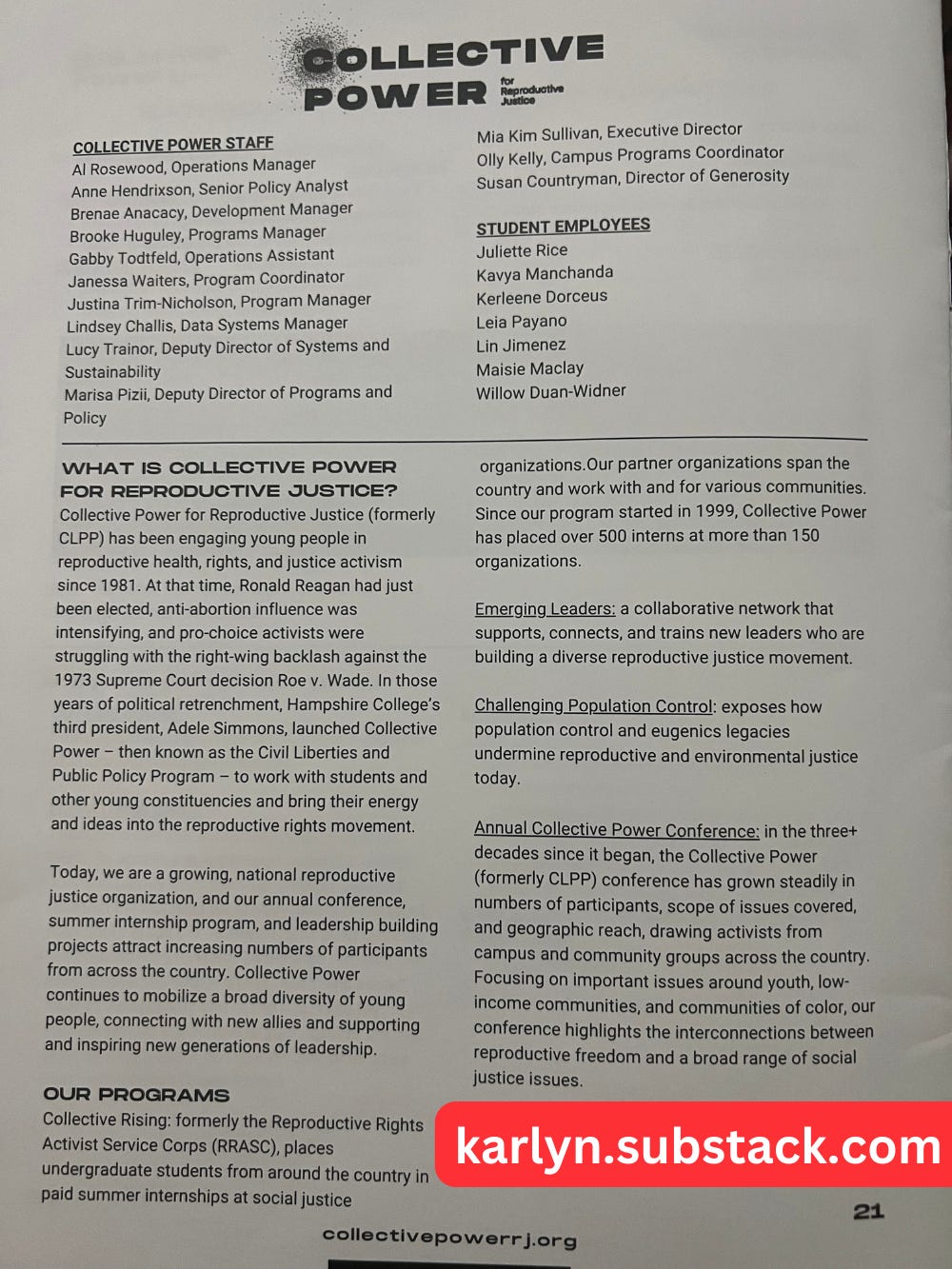
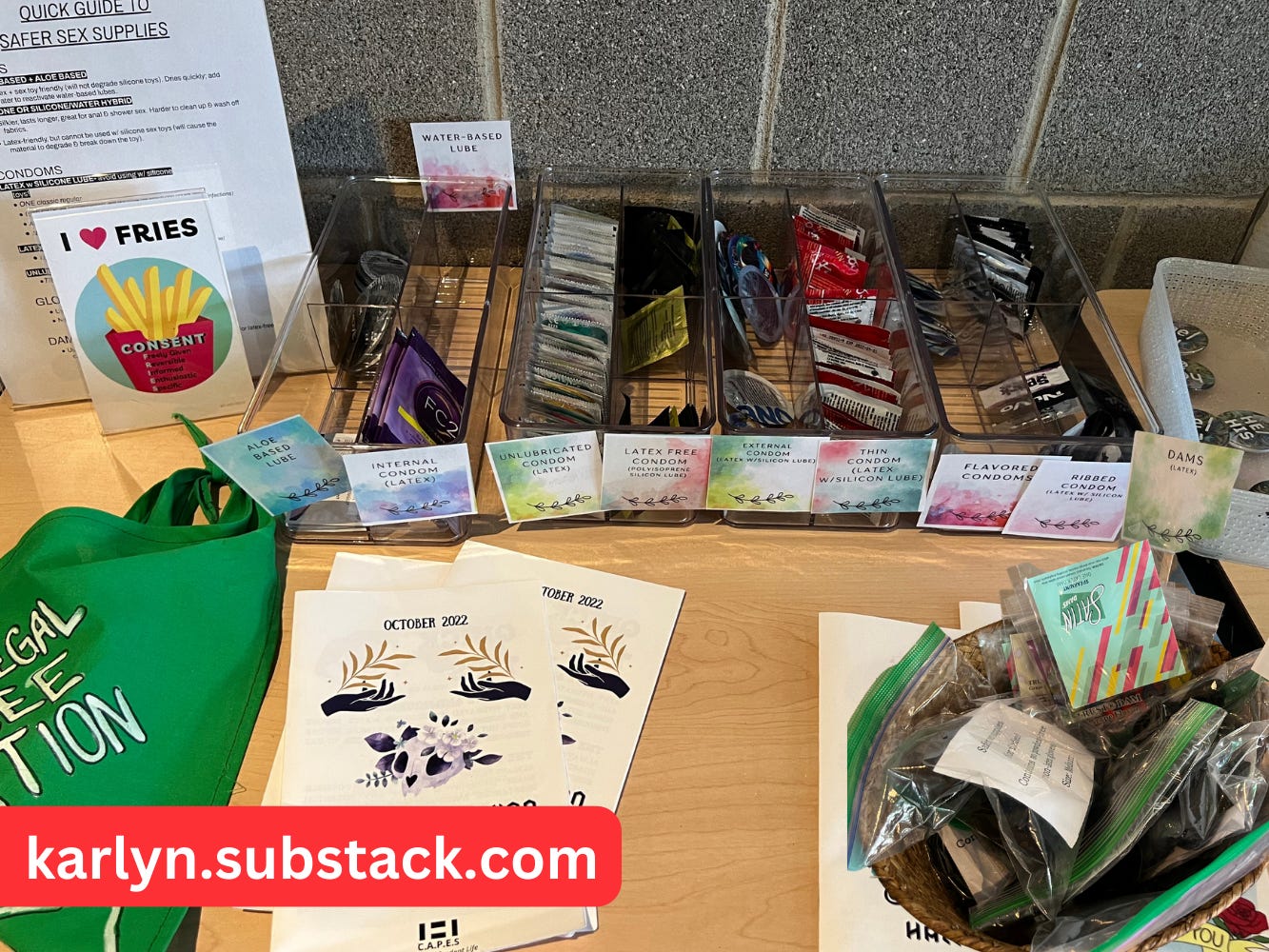
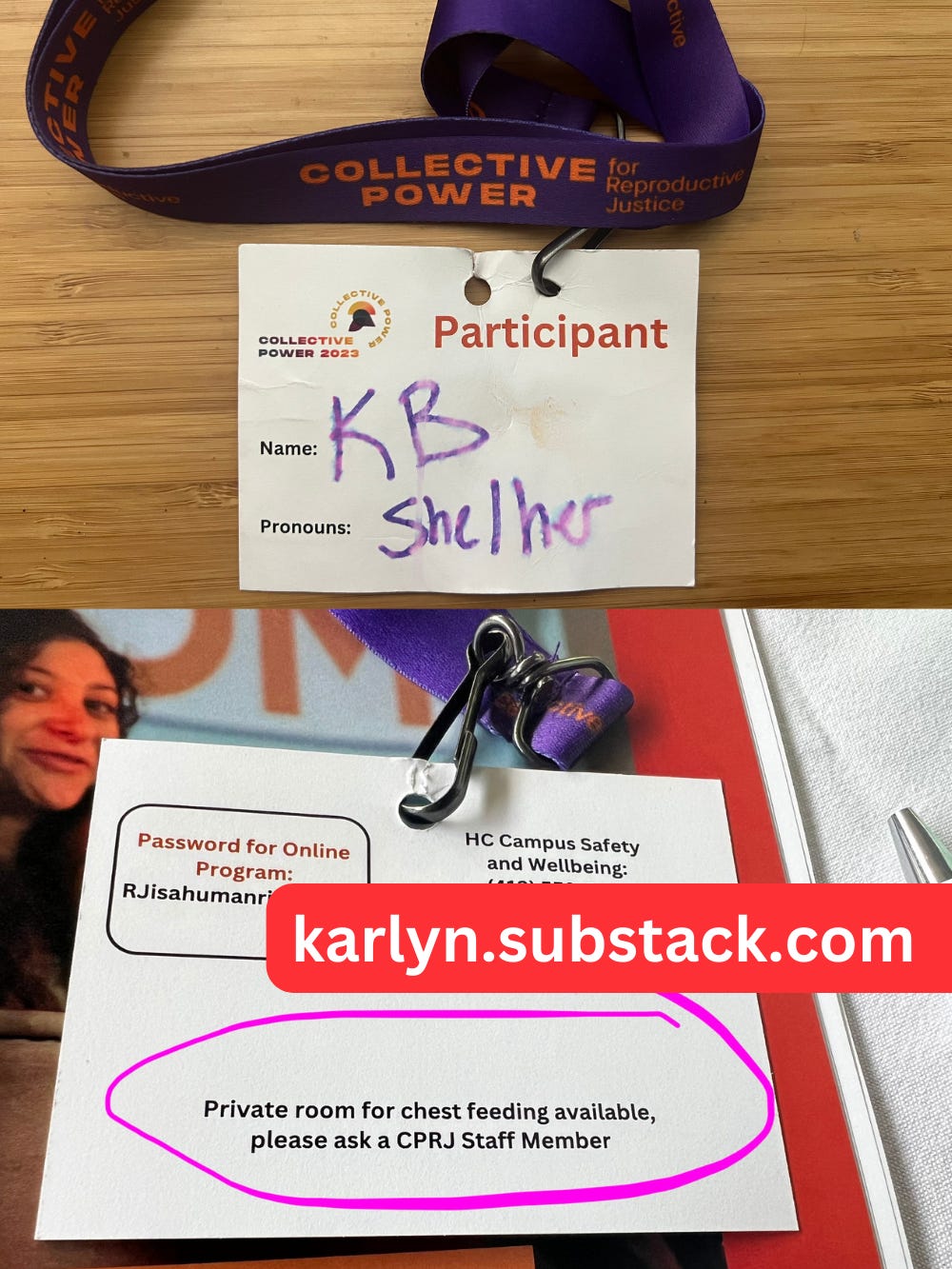
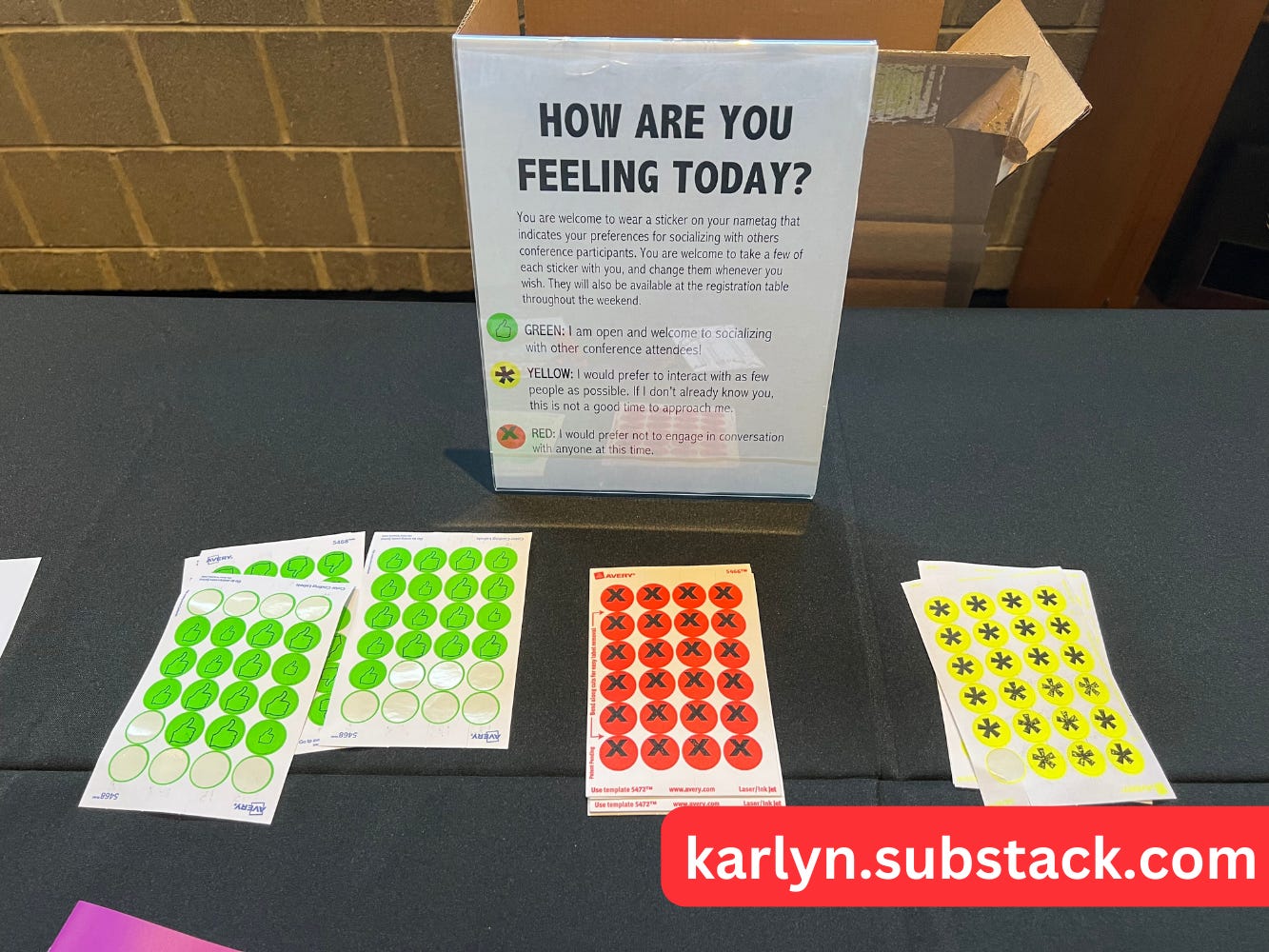
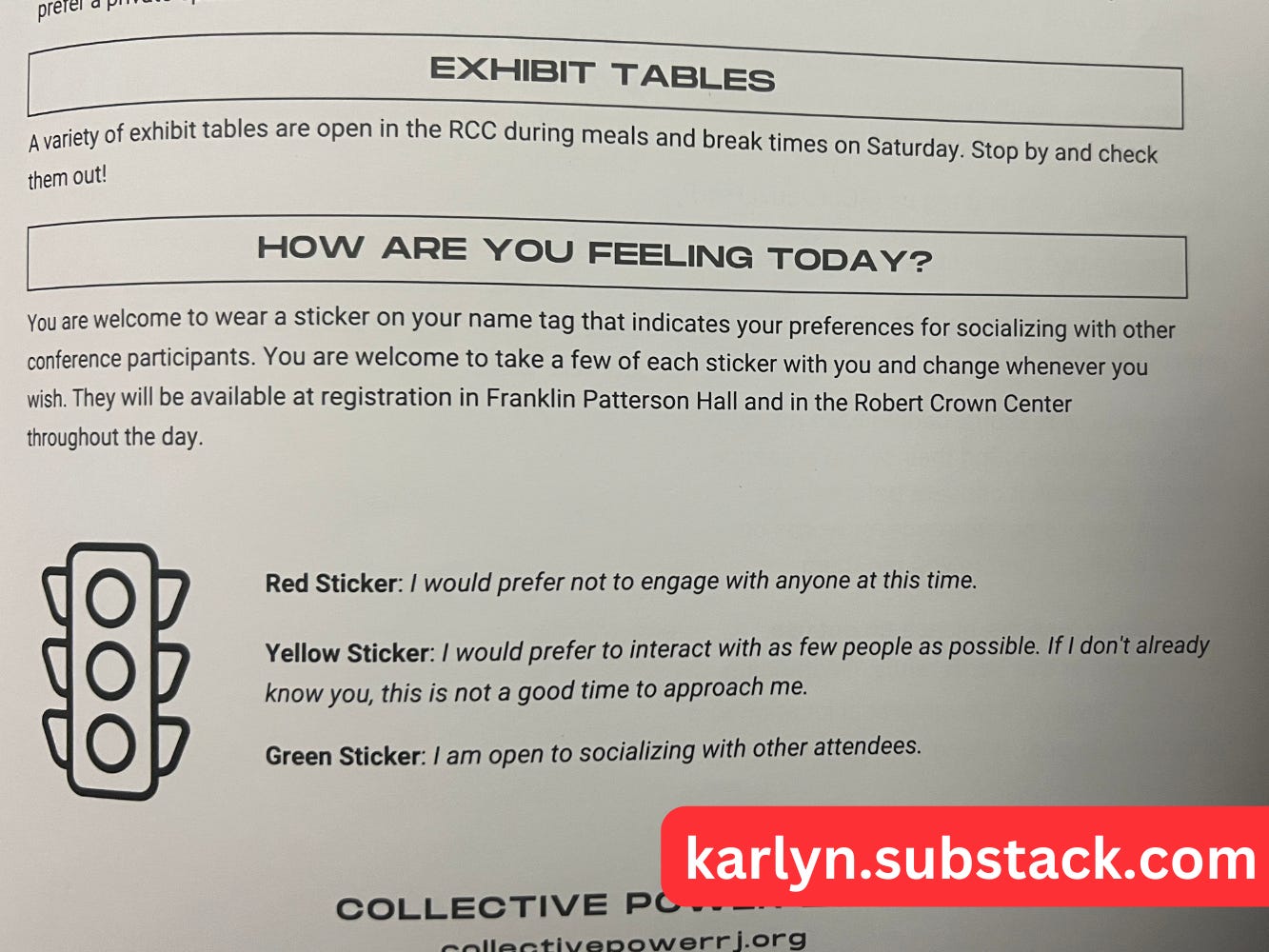
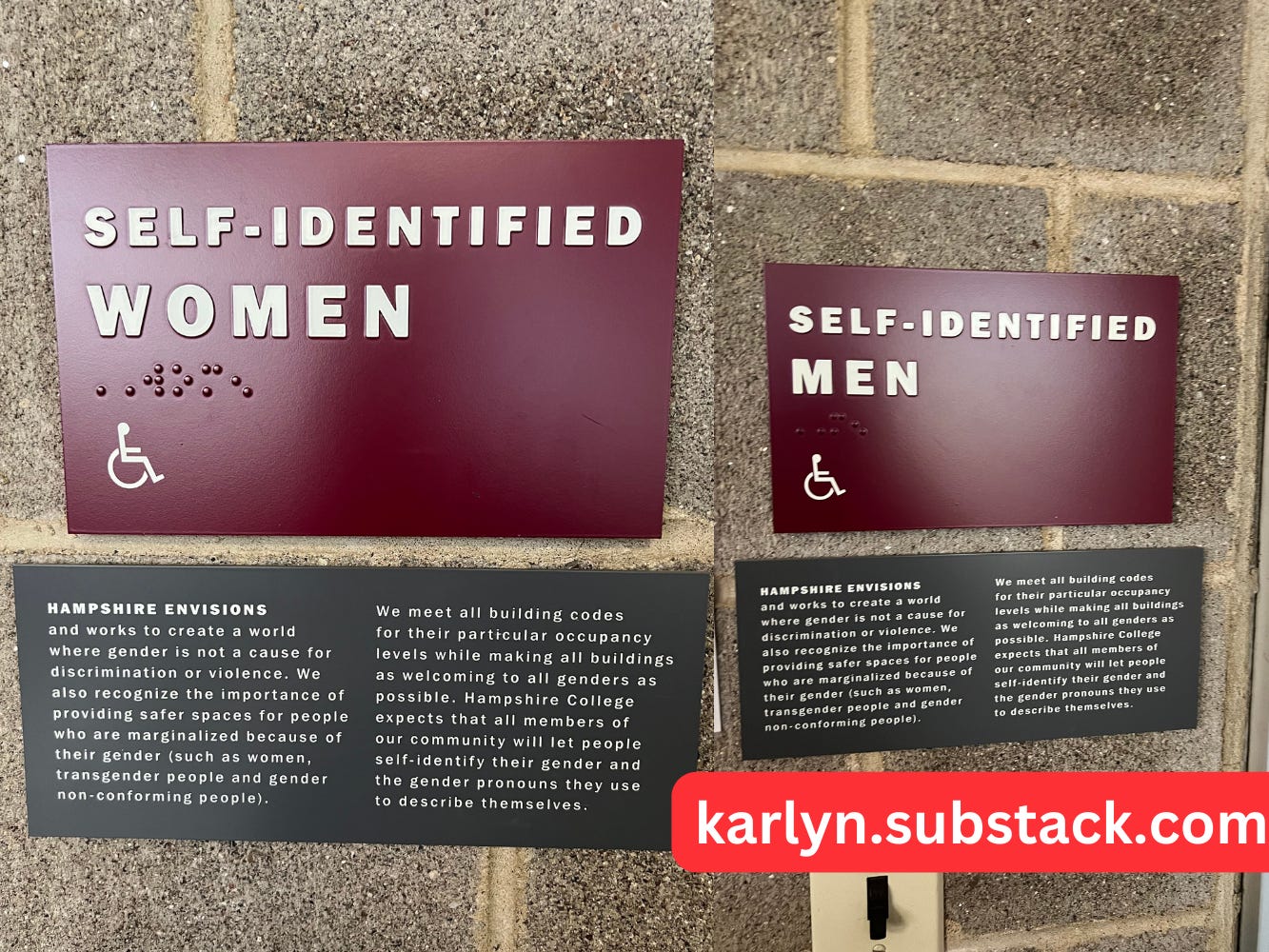
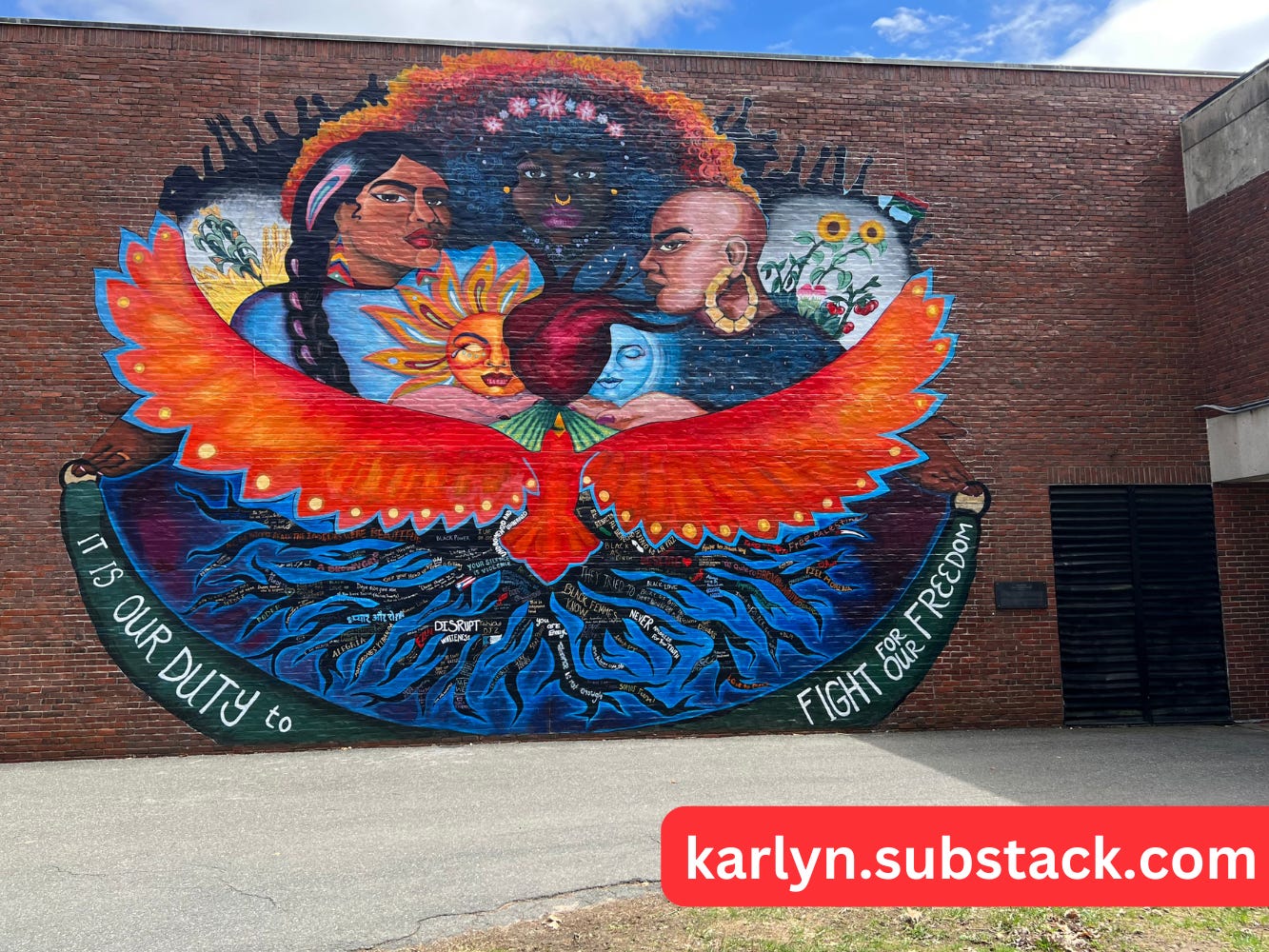
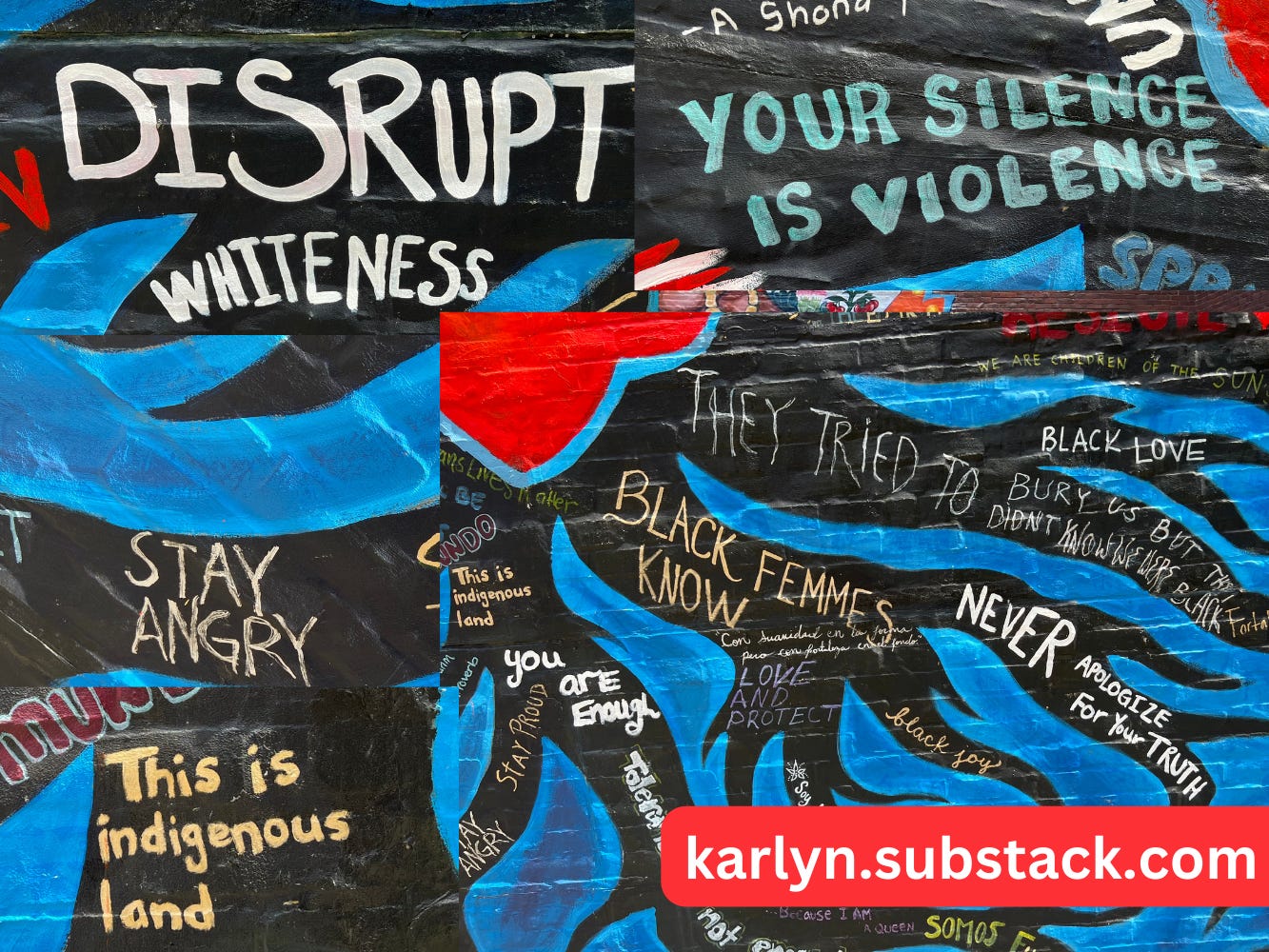
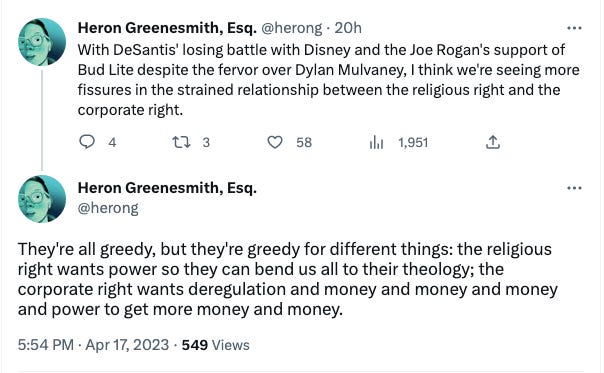

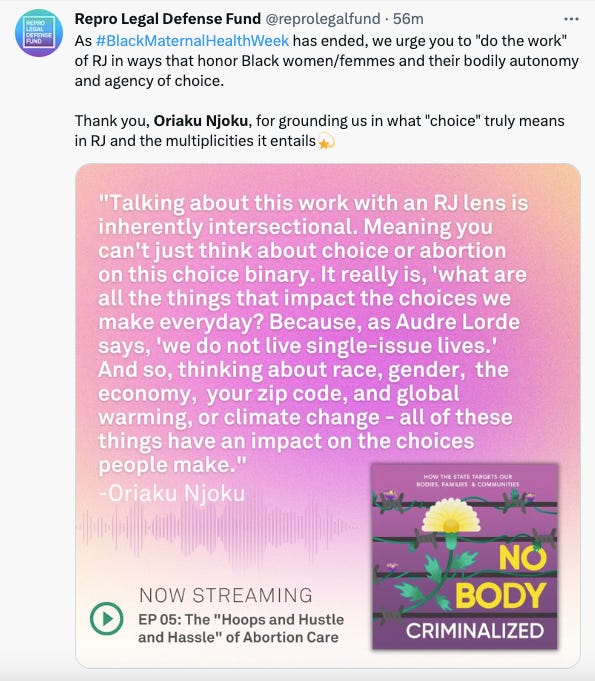
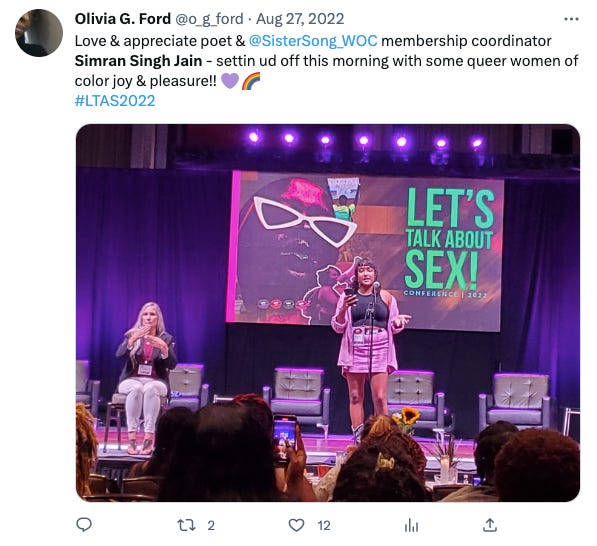

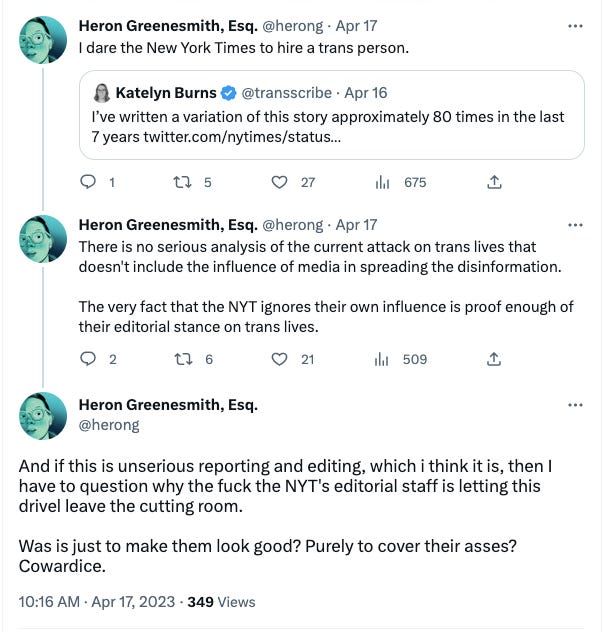
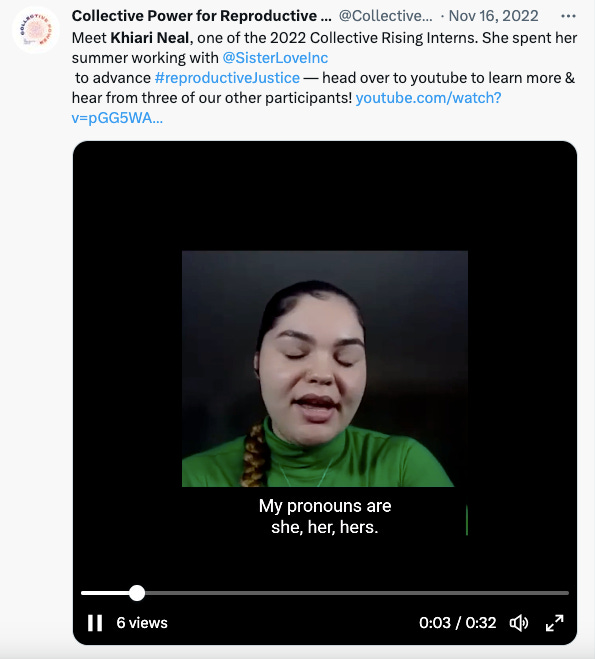
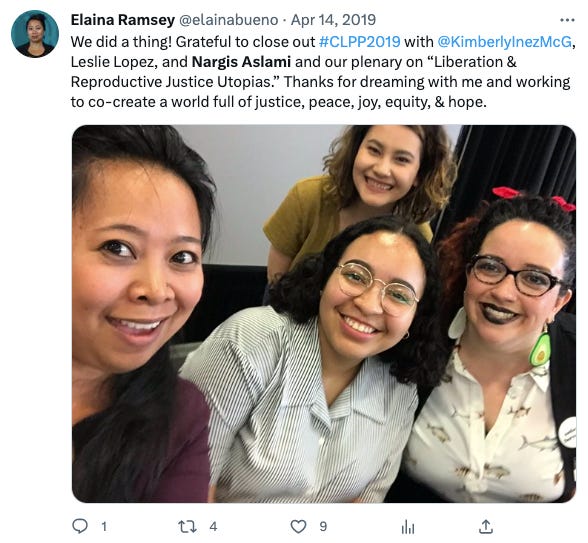

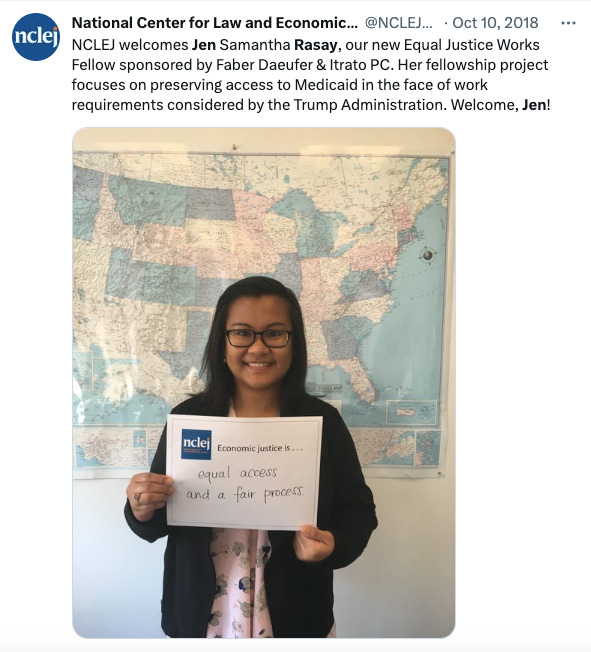
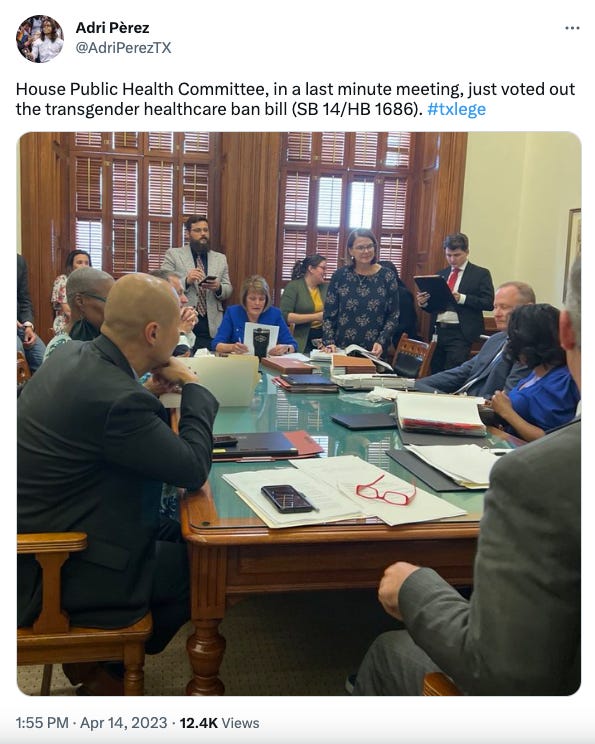
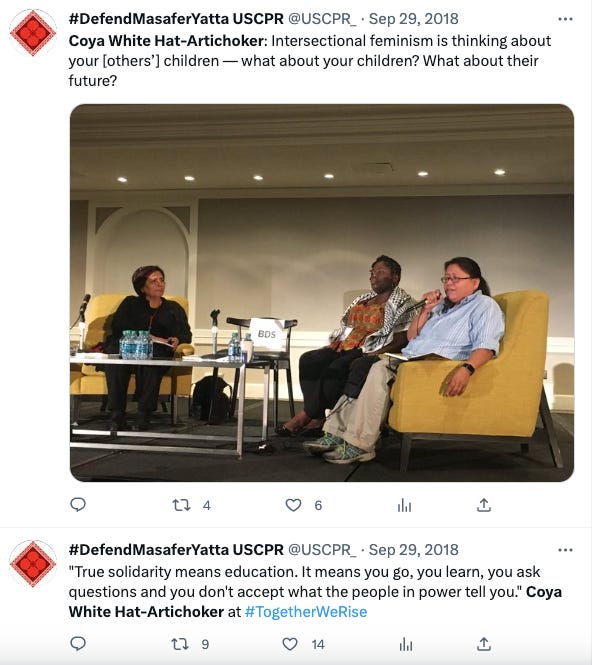
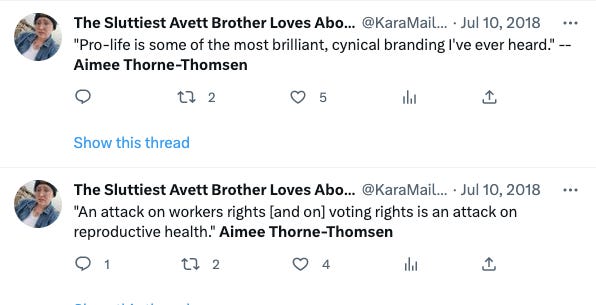
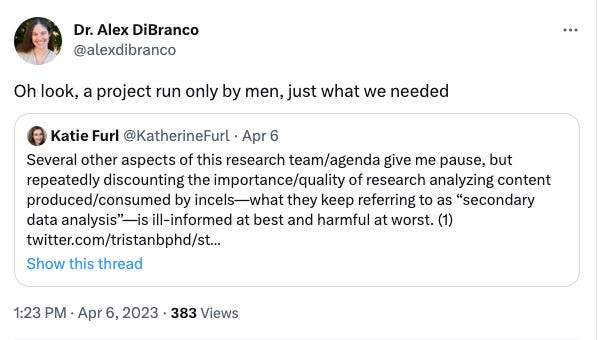
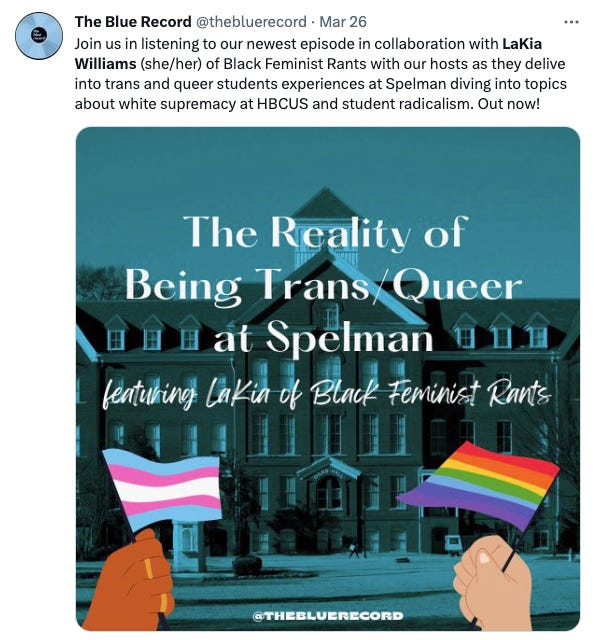

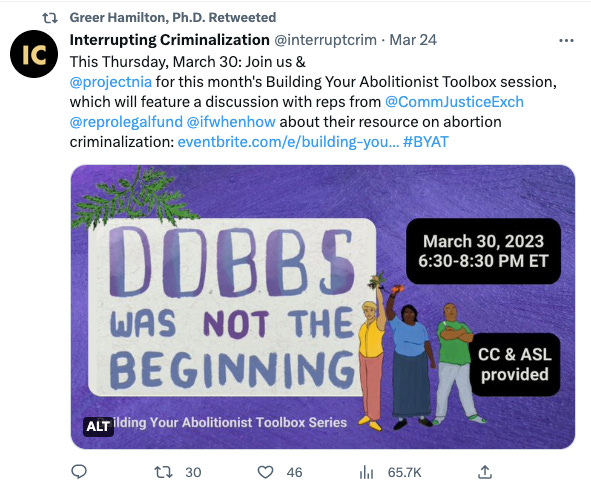
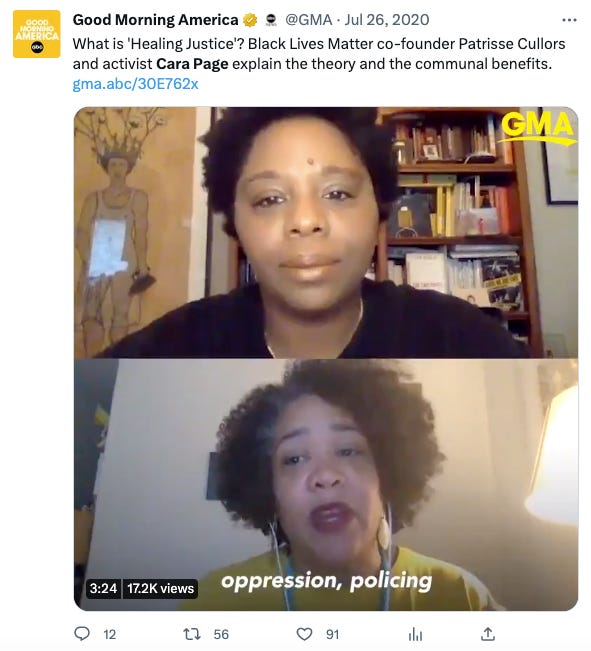
Humans are either large gamete or small gamete. Some are born "in-between" for lack of a more precise term. That is all, Everything else is pseudo-science or plain BS no matter how much you spent on having your junk changed/mutilated/wevr. That is all.
Thank you for going undercover. This is a dizzying array of demoralization. Who is funding all this nonsense?